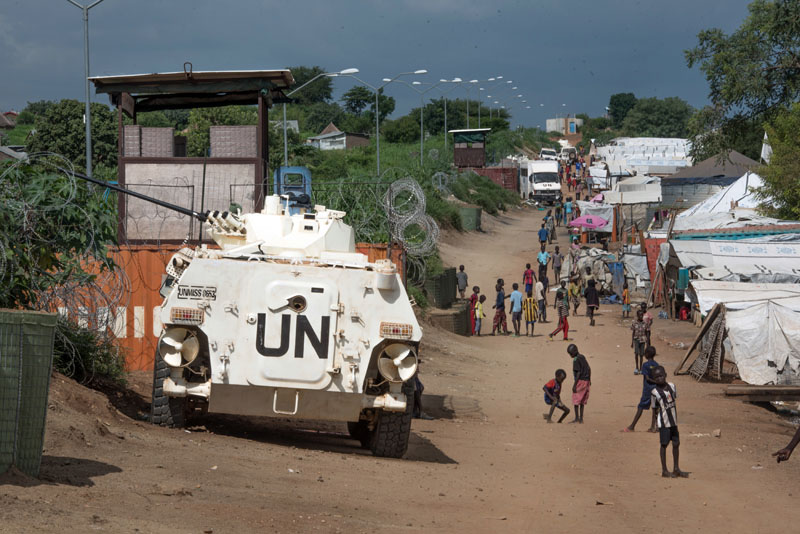UN to deploy up to 700 more peacekeepers from Nepal
Kathmandu, June 28
The United Nations Peacekeeping, which deploys military, police and civilian personnel in conflict areas across the globe for peacekeeping missions, is planning to mobilise additional 600 to 700 Nepali personnel in the Central African Republic, increasing the number of Nepali peacekeepers associated with the UN to over 6,000.
The UN had made a request to several countries to deploy a full battalion in the African country. “But Nepal was forthcoming and has a battalion of 600 or 700 personnel ready for deployment,” UN Under-secretary General for Peacekeeping Operations Jean-Pierre Lacroix told THT in an exclusive interview. “We are now working on deployment (of these personnel).”
Nepali peacekeepers, according to Lacroix, are very much sought after, because they “have a very good record in terms of conduct and discipline”, and the “chief of mission can trust them to do what they are asked to do”.
A total of 5,511 Nepali peacekeepers, including 4,669 army personnel, 688 police, 100 staff officers and 54 military experts, are deployed in 14 UN missions throughout the world. This contribution has made Nepal the sixth largest supplier of troops and police personnel to the UN peacekeeping missions after Ethiopia, Bangladesh, Rwanda, India and Pakistan.
Yet Nepal needs to focus more on promoting gender equality in troops it sends for peacekeeping, as only 189 women — or 3.4 per cent of the total deployment — are serving the UN peacekeeping missions.
If Nepal fails to make great strides on this front, it will not meet the UN’s 2020 deadline for incorporating at least 20 per cent women in peacekeeping missions.
“Increasing the number of female peacekeepers is important because we engage with very vulnerable populations, and sometimes women and children are under threat. So it’s very important to have women in our units,” said Lacroix, who was on a three-day visit to Nepal until today
to thank Nepal for making “really
important contribution” to UN Peacekeeping. “But I know Nepal is working on it and we appreciate that,” added Lacroix, who met the president, the prime minister, the defence, foreign and home ministers, and the chief of army staff during his stay in Nepal.
In the last one to two decades, UN peacekeeping has become very complex. Today, peacekeepers not only monitor ceasefires in conflict zones, but engage in multi-dimensional peacekeeping operations, which include facilitating the political process through promotion of national dialogue and reconciliation, protecting civilians, lending a hand in disarmament, demobilisation and reintegration of combatants, supporting elections, protecting and promoting human rights and assisting in restoration of the rule of law.
These factors have made peacekeeping “much more challenging”, according to Lacroix. “As a result, many of our missions are working in a much more dangerous environment. And last year, there were very high numbers of fatalities in peacekeeping,” said Lacroix.
Till May 31, 76 Nepalis had lost their lives in UN peacekeeping missions.
The UN has recently introduced an action plan to reduce the number of fatalities. “With this action plan, we are actually touching on all the key issues, such as training, including pre-deployment and on-the-mission training. We are also working on pre-deployment visits and certification to make sure the deployments are as per our needs,” said Lacroix. “We are also making sure no injured peacekeepers have to die and in case of fatalities, we deal with families rapidly and in a dignified way.”






